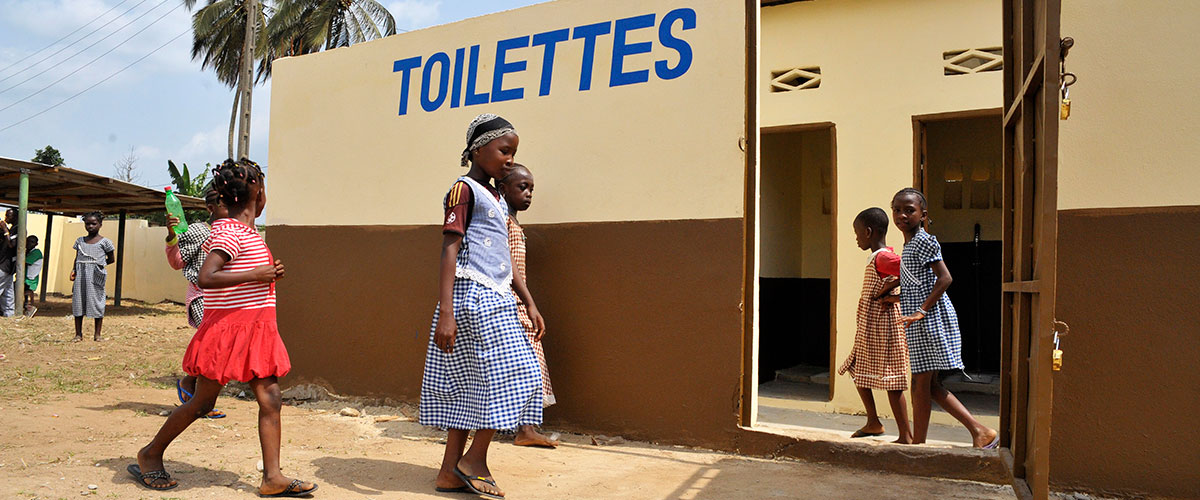
By 2030, the Sustainable Development Goals (SDGs) aim to reach everyone with adequate and equitable sanitation, as well as halve the proportion of untreated wastewater and increase recycling and safe reuse. For that to be achieved, everyone’s poo needs to be contained, transported, treated and disposed of in a safe and sustainable way. To raise awareness of the importance of this four-step journey, ‘wastewater’ is the theme of World Toilet Day 2017 on 19 November.
For billions of people, there is no safe toilet or sanitation service to take away the waste, allowing poo to get out into the open air where it’s spread by flies, making people seriously ill.
And even where there is some sanitation infrastructure, pipework can break or raw sewage can be emptied into the environment, contaminating farmland and water sources.
Dealing with our poo properly is not only about averting danger, it’s also about seizing an opportunity. Poo, safely treated and reused, has massive potential as an affordable and sustainable source of energy, nutrients and water, as well as generating jobs and investment opportunities.
The poo journey
If there’s one thing that unites humanity, it’s the call of nature. But depending on where people live, it’s not always possible to dispose of bodily waste safely and responsibly.
To achieve SDG 6 and ensure availability and sustainable management of water and sanitation for all, everyone’s poo needs to take a 4-step journey:
- Containment. Poo must be deposited into a hygienic toilet and stored in a sealed pit or tank, separated from human contact.
- Transport. Pipes or latrine emptying services must move the poo to the treatment stage.
- Treatment. Poo must be processed into treated wastewater and waste products that can be safely returned to the environment.
- Disposal or reuse. Safely treated poo can be used for energy generation or as fertilizer in food production.
UN DESA’s support to water and sanitation
UN DESA works towards achieving availability and sustainable management of water and sanitation for all in many ways, including by providing support to the High Level Panel on Water in its pursuit of SDG 6.
The department also supports the UN Secretary-General in carrying out the mandates of General Assembly resolution 71/222 which proclaims the period from 2018 to 2028 the International Decade for Action, “Water for Sustainable Development”, to further improve cooperation, partnership and capacity development in response to the ambitious 2030 Agenda.
For more information on the poo journey, World Toilet Day, and some that you can take to help achieve SDG 6: http://www.worldtoiletday.info/
Source: UNDESA Voice
 Welcome to the United Nations
Welcome to the United Nations